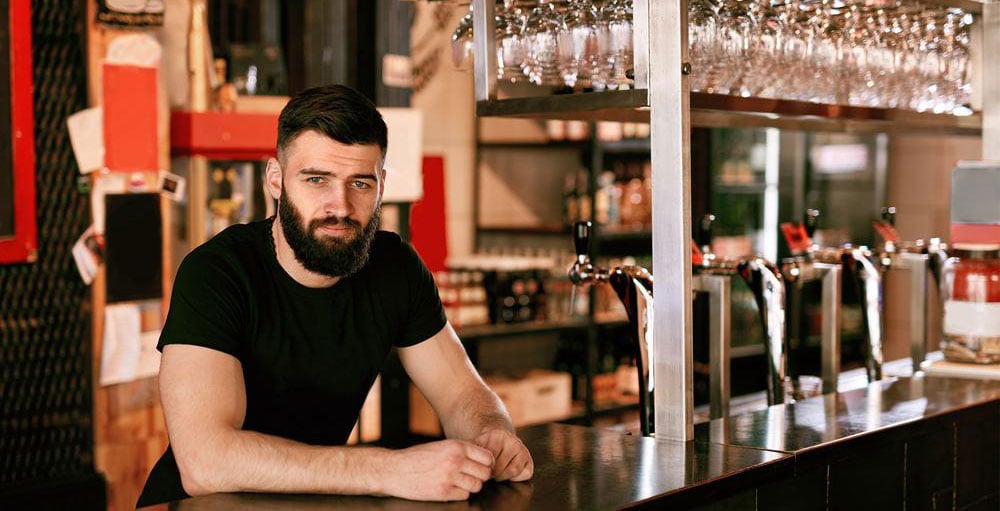Are you following the state requirements to serve alcohol in California?
Do you know your legal responsibilities as an alcohol server, alcohol seller or bartender? Knowing the right way to serve alcohol not only helps you ensure your customers are drinking responsibly, but it also helps prevent you and your employer from facing legal consequences. From the state’s general alcohol service laws to the legal consequences a licensed business may face for breaking these laws, here are the answers to the most frequently asked questions about California’s alcohol service and liquor laws.
Alcohol Service Laws for California
What is the legal drinking age in California?
The legal drinking age in California is 21 years old.
What is the legal alcohol limit for driving in California?
A person must have a Blood Alcohol Concentration (BAC) below .08% to drive legally. A person who has reached a BAC of .08% or above has reached the legal limit for intoxication, is not legally permitted to drive and can be charged with a misdemeanor.
Is there an age requirement to sell or serve alcohol?
Individuals must be at least 21 years old to pour and serve alcohol in California. If the business also serves food, employees who are at least 18 years old are permitted to serve alcohol but are not able to pour alcoholic beverages.
Can a licensed business promote special offers or drink specials?
No. Licensed businesses in California are not permitted to offer discounted drink specials such as ladies’ night or bottomless drink specials.
Responsibilities of an Alcohol Server
Can an alcohol server or seller refuse service?
Yes. It’s part of an alcohol seller, server or bartender’s job to ensure their customers are drinking responsibly. They have the right the refuse service to any individual who cannot provide valid identification or proof that they are 21 or older. They can also refuse or stop service to an individual who is intoxicated.
What counts as a valid ID?
Alcohol servers, sellers and bartenders must check an individual’s ID to confirm they are of legal drinking age. Valid IDs include:
- a federal, state or municipal government-issued document that contains the individual’s name, date of birth, description and photo (e.g. a driver’s license)
- a valid United States or foreign government passport
- a valid Armed Forces identification card that includes the person’s date of birth and photo
- military IDs and government-issued passports without a physical description of the person are acceptable
- a Real ID driver’s license or identification card marked with a gold bear and star
Training Requirements for Alcohol Servers
Does an alcohol server need alcohol server training to serve alcoholic beverages in California?
Yes. As of July 1, 2022, all alcohol servers, bartenders and their managers must have a valid Responsible Beverage Server (RBS) Certification to serve alcohol in California. This certification is issued by the California Department of Alcoholic Beverage Control (ABC) after a person completes the required alcohol server training and passes the state exam.
The required training, regulated by ABC, is called the Responsible Beverage Server (RBS) Training.
Userve’s RBS Certification Training Program is approved by ABC and is the training a person needs to get their RBS Certificate.How can an alcohol server prove they are RBS Certified?
After completing the RBS Training Course and passing the state exam, ABC will issue the individual a certification number through the RBS Portal. This certification number confirms that a person has their RBS Certification.
What are the consequences of not being certified?
Every alcohol server and their manager on staff at a licensed business must be certified. Starting September 1, 2022, licensed businesses can receive disciplinary action if even one required employee does not have their RBS Certification. The severity of the penalty can depend on the percentage of employees without a certification.
Legal Consequences
What are the types of crimes related to alcohol laws?
- Infraction: Also referred to as violations, these are minor offenses that are punishable by fines to a maximum of $200. E.g. A person under 21 attempting to buy alcohol.
- Misdemeanor: Penalties depend on varying factors, but a misdemeanor is punishable by fines of $1,000 or more, and/or a maximum county jail sentence of one year. E.g. Driving under the influence with a BAC of .08% or higher.
- Felony: These crimes are punishable by a maximum fine of $10,000 and imprisonment in the state prison. E.g. Serious bodily injury caused by driving under the influence.
What are the legal consequences of selling alcohol to an underaged person?
Any individual caught selling, serving or purchasing alcohol for a person under 21, whether or not they know the person is under the legal drinking age, can be charged with a misdemeanor.
A cause of legal action can be brought to an alcohol seller or server by, or on behalf of, any person who has suffered injury or death caused by the sale of an alcoholic beverage to a minor.
What are the legal consequences of selling alcohol to an intoxicated person?
A person who sells or serves an alcoholic beverage to an obviously intoxicated person can be charged with a misdemeanor.
Can a licensed business sell alcohol at any time of the day?
No. In California, it is also not permitted to sell or serve alcohol between the hours of 2 am-6 am. Those caught selling or serving alcohol outside of these permitted hours can be charged with a misdemeanor.
Can a licensed business sell alcohol past its hours of operation?
No. Licensed businesses and employees of that business cannot sell or serve alcohol on the business premises outside the business’s hours of operation specified on their alcoholic beverage license. Those caught selling outside of the specified business hours can be charged with a misdemeanor.
Can a business be charged for employing an alcohol server under 21 years of age?
Yes, businesses can be charged with a misdemeanor. Alcohol servers must be a least 21 to pour and serve alcohol in California. Employees at least 18 years of age can serve, but not pour, alcoholic beverages if the business also serves food.
At Userve, we understand that knowing the laws and regulations related to alcohol service may be confusing. Understand your legal responsibilities as an alcohol server by taking the California RBS Certification Program. Our state-approved training program provides in-depth lessons, as well as course resources, outlining the legal responsibilities of the state’s liquor authority, law enforcement, alcohol servers and employers.

